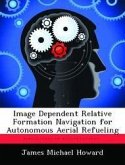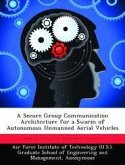As unmanned aerial vehicles (UAVs) increase in capability, the ability to refuel them in the air is becoming more critical. Aerial refueling will extend the range, shorten the response times, and extend the loiter time of UAVs. Executing aerial refueling autonomously will reduce the command and control, logistics, and training efforts associated with fielding UAV systems. Currently, the Air Force Research Laboratory is researching the various technologies required to conduct automated aerial refueling (AAR). One of the required technologies is the ability to autonomously rendezvous with the tanker. The goal of this research is to determine the control required to fly an optimum rendezvous using numerical optimization and to design a feedback controller that will approximate that optimal control. Two problems were examined. The first problem is for the UAV receiver to rendezvous in minimum time, with a known tanker path. The second problem is for the receiver to rendezvous at a specified time with a known tanker path. For the first problem, the results of the rendezvous controller developed will be compared to the calculated optimal control.








